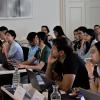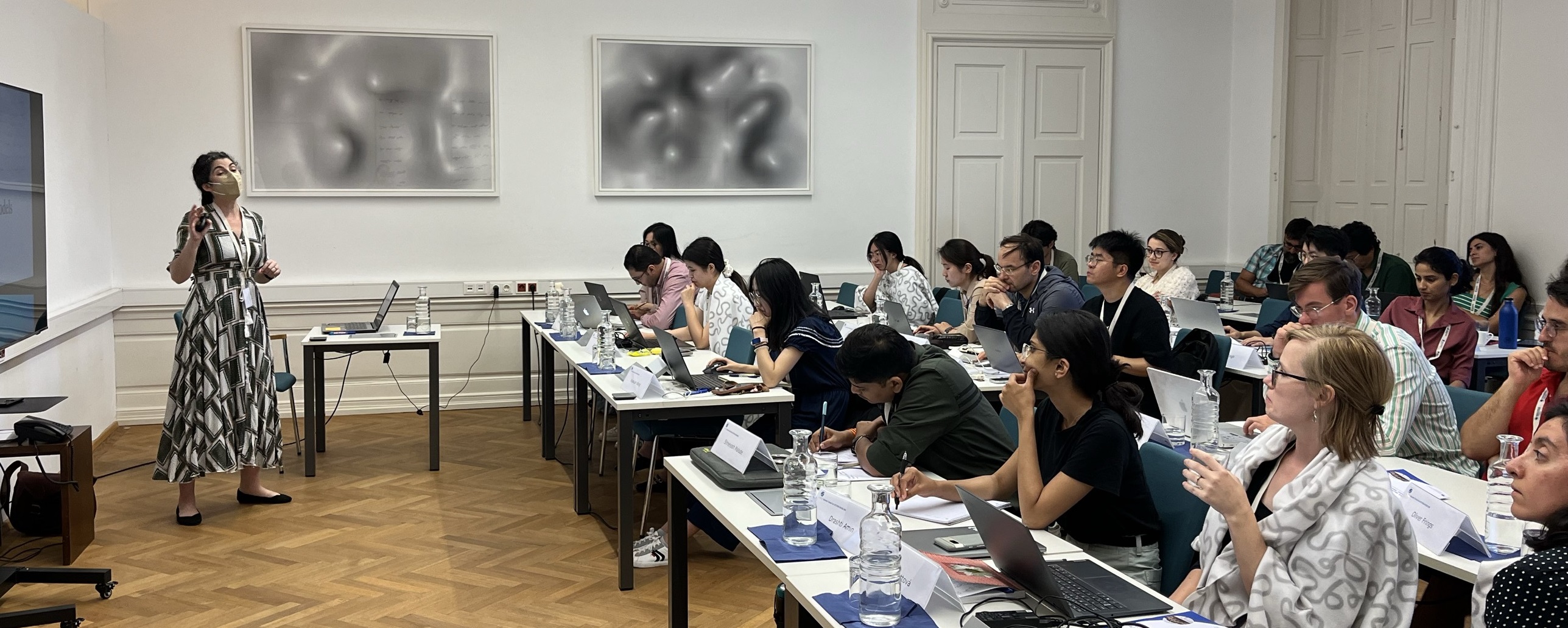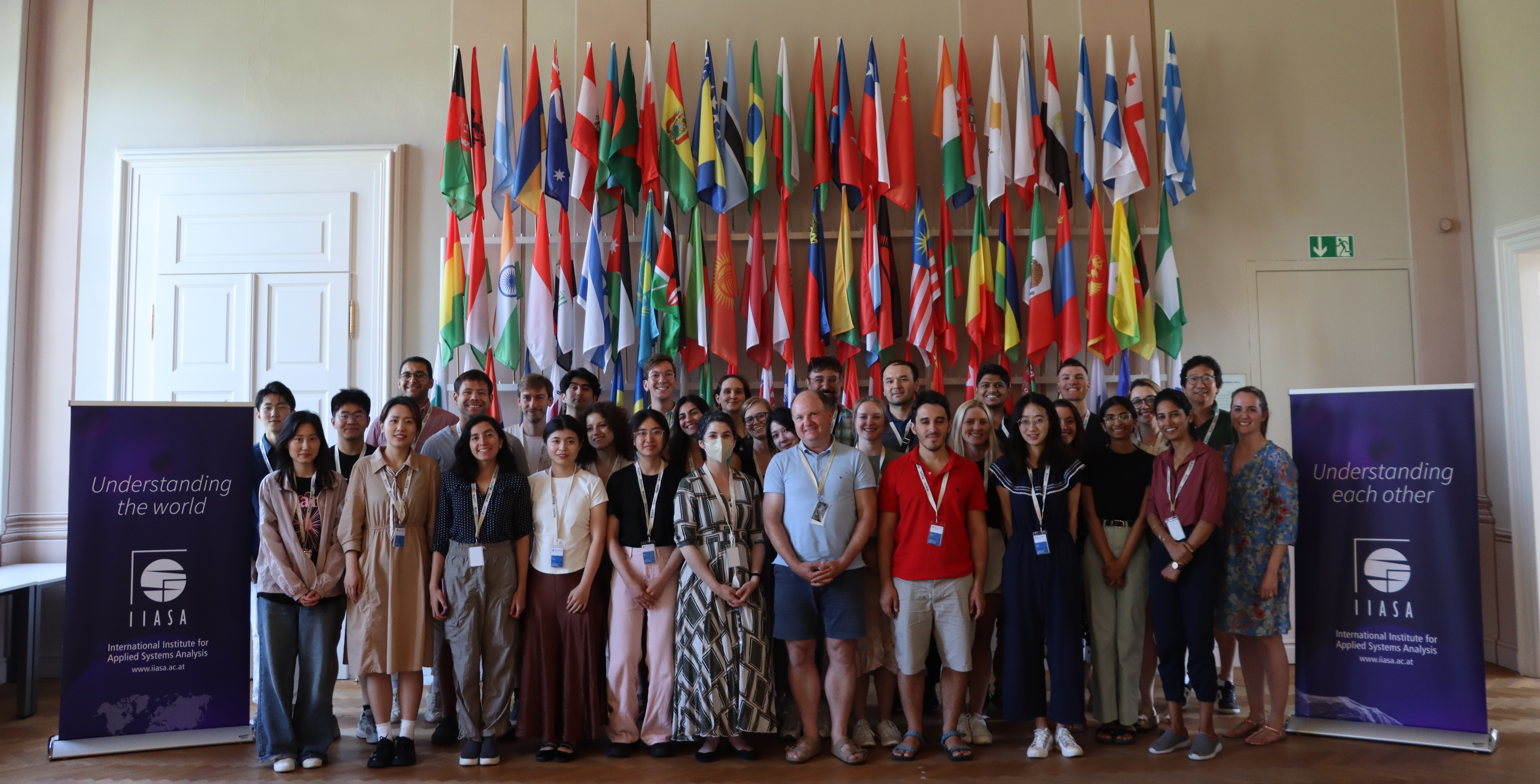
IIASA’s first-ever Summer School for Systems Modeling took place at the IIASA premises in Laxenburg, Austria from 15-26 July 2024. Kirsten Glenn, Capacity Development Coordinator in the IIASA Capacity Development and Training Unit reflects on the successful completion of this new IIASA initiative.
The IIASA Summer School for Systems Modeling equipped participants with a solid understanding of modeling practices and limitations, and provided systematic guidance on the development and use of mathematical and computer models, while addressing uncertainties in data and processes, exploring solution spaces, and distilling viable options for taking policy action.
In his welcome remarks, IIASA Capacity Development and Academic Training Dean, Fabian Wagner, highlighted the motivation behind the summer school:
“As you read the news on an average day you are confronted with the world’s big challenges – both those that lie ahead of us and those that are already with us: climate change, biodiversity loss, conflicts over territory, the soft underbelly of AI, growing inequality, and the threat of disinformation, to name just a few. Reading further and digging deeper, you find that we are also drowning in data and information of which we need to make sense to understand what can be done to avoid at least the grimmest of future scenarios. More data does not necessarily mean more insight. We can use models to give structure to the phenomena, to understand what’s going on, to play out possible pathways, and to find sweet spots between the trade-offs.”
The Summer School took place in two parts: the first week’s agenda consisted of a series of lectures on various topics including: Systems thinking, how to model, a “tasting menu” of models (including dynamical systems models, agent-based models, decision/game theory models, the Markov model, statistical models, and data-driven inference models), transdisciplinary research design, and open models/open science. Furthermore, participants were encouraged to select a number of electives, among which were decision making under uncertainty, network analysis, data science, optimization, deep learning, and justice and games.
The second week ushered in group work with participants self-organizing into six groups according to interest to develop models of their own. Their work culminated in final presentations on the following topics: “Assessing factors influencing acceptance of new infrastructure”, “Mitigation-adaptation-model (MAM): An amazing model solving the global prisoner’s dilemma”, “De-cascading public health risks and flooding”, “Energy-emission model for China’s residential electricity: Decarbonization pathways using the MESSAGE-ix framework”, “A greener, cleaner future: Policy roadmap for maximizing synergies and co-benefits of sustainable agriculture”, and “Modeling the development of eco-product supply chains to enhance emission neutralization trajectory (MODESCENT)”. Some of these group projects may develop into full-scale academic collaborations between participants.
The Summer School brought together 32 participants representing 16 nationalities, from 14 countries, including Austria, China, Czech Republic, Egypt, France, Germany, India, Israel, Italy, Japan, Netherlands, Portugal, Sweden, and the United States. Many participants received support from their respective IIASA Member Organizations. Fifteen IIASA researchers, as well as two external guest lecturers, Nina Fefferman and Elisa Omodei, actively engaged with the summer school cohort. During the School, participants were also given the opportunity to mingle with colleagues from the Young Scientists Summer Program (YSSP), give flash-talk presentations on a topic of their choice, and learn more about IIASA’s GAINS, MESSAGE-ix, and GLOBIOM models.
By the end of the Summer School, all participants had received a well-grounded understanding of modeling practices. Participant Susanne Haas, an analyst at the United Nations World Food Programme, noted that the mix of theoretical knowledge combined with practical application and group-work was well-received. She elaborated that she liked how the lecturers conceptualized their sessions and that the materials presented can be reused or rewatched in the future to learn from them. Another participant mentioned that they were worried that not coming equipped with a mathematics/computer science background and being new to modeling would result in frustration, but they were impressed with how well the concepts were explained and how digestible all the mathematical concepts were in the end. In some ways, this participant said, they learnt more than expected, considering that they had very high expectations to begin with.
As most lectures were recorded, IIASA plans to make them available in the future – first, in-house and then potentially to a wider audience.
If you are interested in attending future IIASA Summer Schools, please keep an eye on our website for upcoming opportunities or visit the IIASA summer schools webpage to find out more about our offering. Given the high interest and success of the first Summer School for Systems Modeling, the Institute plans to present it on an annual basis.
Note: This article gives the views of the author, and not the position of the IIASA blog, nor of the International Institute for Applied Systems Analysis.

